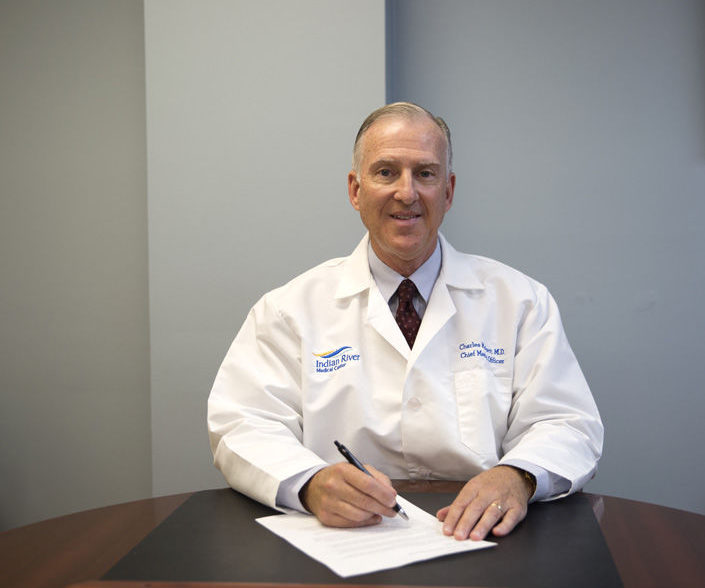
A recent study from Johns Hopkins Medicine received a flurry of media attention, and rightly so: It concluded medical errors cause more than 250,000 deaths in the United States each year, making it the third-leading cause of death, behind heart disease and cancer.
The Johns Hopkins team examined four separate studies on causes of death; those studies contained data over an 8-year period, from 2000 to 2008. Based on 2013 hospital admission rates, the team extrapolated that 251,454 deaths stemmed from a medical error, which translates to 9.5 percent of all deaths in the United States.
Charles Mackett is senior vice president and chief medical officer at Indian River Medical Center. He says the study results are valid and on-track, and that they support previous research done at Johns Hopkins.
Dr. Mackett says, “I tell medical students that medicine used to be simple, cheap, safe and largely ineffective. Now it’s complex, very expensive and highly effective – but it’s dangerous.” The increased complexity is driven by more procedures, more technology and more patient “hand-offs” from one healthcare professional to another.
In contrast to the Johns Hopkins study, the Centers for Disease Control and Prevention (CDC) places chronic respiratory disease – not medical errors – as the third leading cause of death. The researchers have an answer for this disparity: They say the CDC’s way of collecting national health statistics simply doesn’t classify medical errors separately on death certificates. It reports the condition for which the person was being treated.
Martin Makary, professor of surgery at the Johns Hopkins University School of Medicine and an authority on health reform, says that in 1949 the United States adopted the use of “International Classification of Diseases” billing codes (the ICD codes you may see on some of your medical bills) to tally causes of death.
“At that time,” Makary says, “it was under-recognized that diagnostic errors, medical mistakes, and the absence of safety nets could result in someone’s death, and because of that medical errors were unintentionally excluded from national health statistics.”
It’s important to note that the Johns Hopkins team says most medical errors are due to systemic problems, not bad doctors. Systemic problems include poorly coordinated care, fragmented insurance networks and the absence or underuse of safety nets.
Dr. Mackett explains that at IRMC there are quality and patient safety committees that meet monthly to review metrics and to look for improvement opportunities; there are also daily “patient safety huddles” in which he and all clinical directors and managers participate. He says Indian River Medical Center “is focused on quality and patient safety from the Board of Directors and the CEO on down. We have added a lot of people recently whose focus is on these two key areas. The team we’ve assembled will build on what’s been established in the past.”
Happily for our community, US News & World Report ranks IRMC as the No. 12 hospital (out of 261) in Florida for 2015-2016. “This ranking is based on quality and patient safety metrics,” Dr. Mackett says. (Additional information about IRMC’s awards, honors and affiliations can be found on their website: https://www.indianrivermedicalcenter.com/about/awards-honors/).
Dr. Mackett acknowledges that fragmentation remains a problem in the delivery of healthcare. IRMC is part of a program called TeamSTEPPS (Team Strategies and Tools to Enhance Performance and Patient Safety) whose goal is to improve communication and teamwork skills among healthcare professionals. He says, “It is part of our strategic plan to better align with the community’s private practice physicians and develop a patient-centered, clinically integrated network.”
The Johns Hopkins research team is pushing for updated protocols for death certificate “reason for death” classifications.
“Top-ranked causes of death as reported by the CDC inform our country’s research funding and public health priorities,” Makary says. “Right now, cancer and heart disease get a ton of attention, but since medical errors don’t appear on the list, the problem doesn’t get the funding and attention it deserves.”



